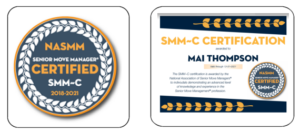The Challenge of Caring for Someone With Memory Loss
 In my previous article I shared some brain boosting tips for seniors who may simply be feeling a little brain fog, but haven’t actually been diagnosed with dementia or Alzheimer’s disease. In this article, I would like to share some strategies for caregivers and loved ones who who find themselves caring or loving someone who has been diagnosed and is living with dementia.
In my previous article I shared some brain boosting tips for seniors who may simply be feeling a little brain fog, but haven’t actually been diagnosed with dementia or Alzheimer’s disease. In this article, I would like to share some strategies for caregivers and loved ones who who find themselves caring or loving someone who has been diagnosed and is living with dementia.
Caring for someone who has memory loss can not only be challenging but very stressful.
Dementia or Alzheimer’s is a disease of the brain that occurs when the brain’s nerve cells deteriorate and often leads to large numbers of brain cells actually dying. It, in fact, is a medical disease that will affect the person’s personality, feelings, thoughts and behavior. Although some who have the disease may appear perfectly normal and healthy at first, it is progressive and so are the symptoms which may include:
- Psychological changes…
- Anxiety
- Depression
- Agitation
- Paranoia
- Hallucinations
- Changes in personality
- Cognitive changes…
- Loss of memory, orgetting even things or people who they are familiar with
- Disorientation and confusion
- “Losing words” – which makes it dificult to communicate
- Problems with coordination
- Difficulty planning, organizing or dealing with tasks they used to do all the time.
These symptoms can be very frustrating for them, and the last thing you want to do is frustrate or upset them more than is necessary. And because you can’t risk getting frustrated or upset with them either, I have put together this list of strategies to help everyone.
 We should always remember that our goals should be…
We should always remember that our goals should be…
- To show love, care and compassion
- To help them feel secure
- To always make them feel respected
- To help them keep their dignity
Practical Ideas for Caring for Someone with Memory Loss:
- Keep things, especially things that are used often, in the same place. Although this may not alway help things from getting “lost”, it will often relieve the frustration of something seeming lost. There is nothing more frustrating than having something “put away” when in your mind, you know where it belongs.
- It can be helpful to post little helpful signs with simple instructions, such as how to use the toaster or the microwave. Also, it could be helpful to label the cupboards, either with words or images, to show what can be found inside.
- Always have your loved one have identification – name, phone, address – on or with them, there are so many stories told of dementia patients who have gotten lost when they walked out of their home without identification.
- Keep a memory book with pictures of family and friends, labelled with their names, that can be looked at frequently to help your senior remember the faces of the important people in their life.
 Honesty is not always the best policy when dealing with a dementia patient, some things just don’t matter: One lady who had dementia was so frightened because she knew everyone at the hospital was trying to kill her. Some of the people around her tried to persuade her that it wasn’t true, which only frustrated her, frightened her even more and made her feel like they didn’t believe or trust her. Finally, they quit trying to tell her it wasn’t real, they listened to her concerns, and they let her explain what she thought was happening. They then reassured her that they wouldn’t let anything happen to her, she was able to calm down.
Honesty is not always the best policy when dealing with a dementia patient, some things just don’t matter: One lady who had dementia was so frightened because she knew everyone at the hospital was trying to kill her. Some of the people around her tried to persuade her that it wasn’t true, which only frustrated her, frightened her even more and made her feel like they didn’t believe or trust her. Finally, they quit trying to tell her it wasn’t real, they listened to her concerns, and they let her explain what she thought was happening. They then reassured her that they wouldn’t let anything happen to her, she was able to calm down.- When you visit with the doctor, let the patient talk, but then make sure the physician gets all the necessary inormation from your point of view.
- Sometimes giving choices only gives frustration…when it’s dinner time, don’t ask if they are ready to eat, simply say it’s time to eat.
- Let other people help…you can’t do it alone, so if someone offers a meal or a half hour break while you run an errand, accept their offer graciously.
- Above all, be as patient as possible, it’s important to remember that you’re loved one isn’t being forgetful, stubborn or uncooperative on purpose, most likely it’s because they just can’t remember things.

 We are Certified Senior Move Managers recognized by our National Association of Senior Move Managers, NASSM! We are committed to serving our seniors with a high standard of ethics, best business practices and continuing education to help make whatever transition they are going through a Smooth Transition.
We are Certified Senior Move Managers recognized by our National Association of Senior Move Managers, NASSM! We are committed to serving our seniors with a high standard of ethics, best business practices and continuing education to help make whatever transition they are going through a Smooth Transition.
Contact us to learn how we can help you and/or your family cope with a senior downsizing anywhere in the Phoenix East Valley area. We would love to serve you.

Comments are closed.